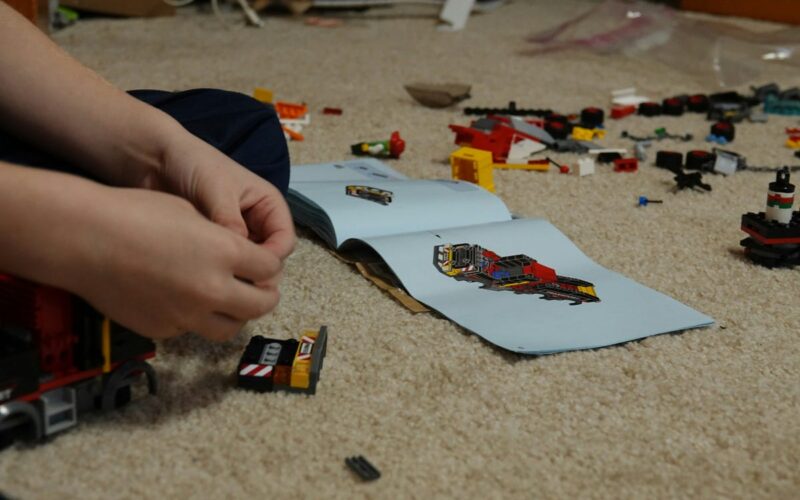This time last year, I woke up every morning and played “The Record” by boygenius from top to bottom.
After that album ended with “Letter to an Old Poet,” a song about mourning a toxic relationship and pleading with the moon for a scrap of happiness, I’d usually chase with tracks by Mitski, Noah Kahan, or Ethel Cain, who tend to write somberly about loneliness, depression, and occasionally murder.
Now, in a delightful twist, I wake up every morning and listen to Charli XCX’s “Brat” — or, as she puts it, “365 party girl, bumpin’ that.”
Charli’s sixth studio album is a buffet of neon-lit, hyper-pop bangers that careen wildly from giddy boasts about wearing designer clothes and being iconic to stark confessions about body image and feminine envy.
In contrast to Mitski’s or Kahan’s works, Charli’s confessions aren’t meant to make you pause and weep. Hers are plainspoken, unpolished, and impulsive, thrown into the ether with abandon and then eclipsed by heavy beats.
Charli’s stream-of-consciousness style mirrors a night at the club; ugly emotions bubble up, but when the DJ plays your favorite song, they dissolve just as quickly.
“Brat,” along with viral hits like Sabrina Carpenter’s “Espresso” and Tinashe’s “Nasty,” have ushered in a season of pleasure and levity — what my friends and I have been calling a “smooth brain summer.”
The key tenants are simple: Don’t overthink, don’t overanalyze, and don’t kill the vibe.
‘Smooth brain summer’ may be a reaction to the news cycle
This trend might feel incongruous with the amount of suffering in the world these days, particularly in recent months. But maybe, instead, it’s a direct correlation — a demand born of burnout, bad news fatigue, and the fatalistic urge to party on a ledge. It’s not October yet; after all, if the apocalypse is coming, our window for pure whimsy is closing.
The primary lure of pop music has always been escapism. The late producer Sophie — a friend and frequent collaborator of Charli, who has a song dedicated to her on “Brat” — once said her goal with pop music was to make “the loudest, brightest thing.”
“That, to me, is an interesting challenge, musically and artistically,” Sophie told Rolling Stone. “And I think it’s a very valid challenge — just as valid as who can be the most raw emotionally.”
Indeed, we’ve lived in a pop world dominated by Taylor Swift and refashioned in her likeness for several years. Swift’s brand of confessional, verbose songwriting has influenced a new generation of musicians that came of age in her wake, from established cult favorites like Phoebe Bridgers to fresher faces like Olivia Rodrigo and Gracie Abrams — all of whom prioritize raw, unflinching honesty in their lyrics.
Nowadays, it’s customary for an artist to promote their forthcoming album as their “most personal work yet,” as if that’s an indisputable virtue or a magic spell for mainstream success. The strategy is getting old if it isn’t already.
Of course, that’s not to say artists like Rodrigo and Abrams are no longer successful. Rodrigo is in the midst of a sold-out world tour to support her No. 1 sophomore album, “Guts,” while Abrams is aiming for a high debut on the Billboard charts with her own sophomore album, “The Secret of Us,” bolstered by a duet with Swift herself.
Some music should be complete gibberish
It is to say that ripped-from-the-diary songwriting isn’t the only way to make great music, climb the charts, or capture the zeitgeist. Not everyone can write a Swiftian hit; indeed, most people shouldn’t try. Some music should just be fun, even if the lyrics are gibberish.
As we’ve been reminded this year, some music is actually more fun if the lyrics are gibberish. Take Carpenter, for example, who posits in “Espresso” that her charms are so addictive, so distracting, they keep her lover awake like a shot of caffeine.
“That’s that me espresso” is a grammatically incorrect sentence, and therein lies the beauty. A simple concept becomes a catchphrase, infinitely quotable and compulsively shareable; it makes the chorus feel like an inside joke between everyone who sings along.
“me espresso” sounds like a lyric written by a swedish pop music genius who doesn’t speak fluent english and thats why its the song of summer
— rebecca jennings (@rebexxxxa) April 24, 2024
Charli and Tinashe have their own versions of this cheeky gimmick. In the chorus of “360,” the opening track on “Brat,” Charli sings, “I’m everywhere, I’m so Julia.” The line is an obscure reference to Julia Fox, which most people would never catch, even if they’ve seen her in the music video.
The language of “I’m so Julia” borders on nonsensical. Still, that’s the phrase that’ll stick in your weird lizard brain — the part fueled by vibes, not logic. Across social media platforms like TikTok and Instagram, people can be found enjoying a new way to compliment their friends and idols: “You’re soooo Julia.”
For Tinashe, whose catalog overflows with clever, expertly crafted songs that should’ve been hits, one ridiculous query has finally earned her breakthrough: “Is somebody gonna match my freak?”
It became a dance trend, then a meme, and now, the song is a true mainstream success. “Nasty” recently reached No. 69 on the Billboard Hot 100, Tinashe’s first-ever solo entry, over a decade after signing her first label contract.
These peculiar bops form the perfect foundation for a “smooth brain summer” soundtrack — though please note that doesn’t mean they’re devoid of value or meaning. Rather, their value and meaning are splayed out in plain sight, ready and eager for consumption. Very little soul-searching or analysis is required to enjoy.
An appetite (and a need) still exists for complex metaphors, history lessons, and personal revelations in pop music — but now is not the time. We’re too busy guzzling that me espresso.
Source link
lol

